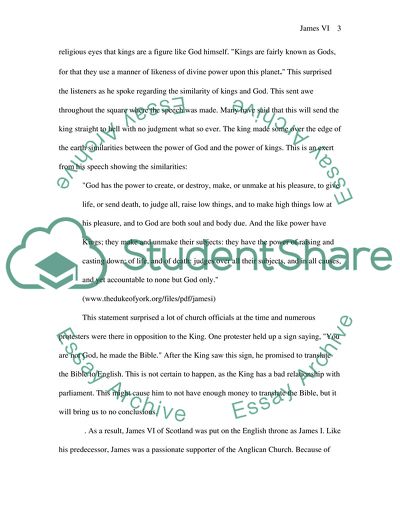Cite this document
(Successful King of Scots Essay Example | Topics and Well Written Essays - 1750 words, n.d.)
Successful King of Scots Essay Example | Topics and Well Written Essays - 1750 words. https://studentshare.org/history/1547174-some-historians-feel-that-james-vi-was-a-successful-king-of-scots-before-1603-but-that-he-sqandered-that-success-after-he-became-king-of-england-do-you-agree
Successful King of Scots Essay Example | Topics and Well Written Essays - 1750 words. https://studentshare.org/history/1547174-some-historians-feel-that-james-vi-was-a-successful-king-of-scots-before-1603-but-that-he-sqandered-that-success-after-he-became-king-of-england-do-you-agree
(Successful King of Scots Essay Example | Topics and Well Written Essays - 1750 Words)
Successful King of Scots Essay Example | Topics and Well Written Essays - 1750 Words. https://studentshare.org/history/1547174-some-historians-feel-that-james-vi-was-a-successful-king-of-scots-before-1603-but-that-he-sqandered-that-success-after-he-became-king-of-england-do-you-agree.
Successful King of Scots Essay Example | Topics and Well Written Essays - 1750 Words. https://studentshare.org/history/1547174-some-historians-feel-that-james-vi-was-a-successful-king-of-scots-before-1603-but-that-he-sqandered-that-success-after-he-became-king-of-england-do-you-agree.
“Successful King of Scots Essay Example | Topics and Well Written Essays - 1750 Words”. https://studentshare.org/history/1547174-some-historians-feel-that-james-vi-was-a-successful-king-of-scots-before-1603-but-that-he-sqandered-that-success-after-he-became-king-of-england-do-you-agree.


